
Discover the Charm of Örebro
Örebro, a gem in the heart of Sweden, is a city that beautifully intertwines history with modernity. The iconic Örebro Castle, standing tall since the 13th century, is a must-visit, offering a glimpse into the city's storied past. Wander through the cobblestone streets and explore Wadköping, an open-air museum showcasing historical buildings and traditional Swedish culture. Don't miss the impressive St. Nicolai Church, a testament to Gothic architecture. Nature lovers will find solace in Stadsparken, one of Sweden's finest city parks, perfect for a leisurely stroll or a peaceful picnic by the water. For a unique experience, visit the Örebro Art Museum, which hosts a variety of contemporary art exhibitions. The city is also home to the Svampen Water Tower, providing panoramic views of the surrounding landscape. Örebro is not just about sightseeing; it's a city for food enthusiasts too. From cozy cafes to gourmet restaurants, you'll find a variety of dining options that cater to all tastes. The city's vibrant culinary scene is complemented by its lively calendar of cultural events, including music festivals and local markets, making every visit a memorable one.
Local tips in Örebro
- Visit Örebro Castle early in the day to avoid crowds and enjoy a more peaceful tour.
- Take a guided tour at Wadköping to fully appreciate the historical context and stories behind the buildings.
- Check the schedule for the Örebro Art Museum to catch temporary exhibitions and special events.
- Climb the Svampen Water Tower on a clear day for the best views of the city and surrounding areas.
- Sample local delicacies at the city's markets, especially during the summer months when fresh produce is abundant.
Discover the Charm of Örebro
Örebro, a gem in the heart of Sweden, is a city that beautifully intertwines history with modernity. The iconic Örebro Castle, standing tall since the 13th century, is a must-visit, offering a glimpse into the city's storied past. Wander through the cobblestone streets and explore Wadköping, an open-air museum showcasing historical buildings and traditional Swedish culture. Don't miss the impressive St. Nicolai Church, a testament to Gothic architecture. Nature lovers will find solace in Stadsparken, one of Sweden's finest city parks, perfect for a leisurely stroll or a peaceful picnic by the water. For a unique experience, visit the Örebro Art Museum, which hosts a variety of contemporary art exhibitions. The city is also home to the Svampen Water Tower, providing panoramic views of the surrounding landscape. Örebro is not just about sightseeing; it's a city for food enthusiasts too. From cozy cafes to gourmet restaurants, you'll find a variety of dining options that cater to all tastes. The city's vibrant culinary scene is complemented by its lively calendar of cultural events, including music festivals and local markets, making every visit a memorable one.
When is the best time to go to Örebro?
Iconic landmarks you can’t miss
Örebro Castle
Discover Örebro Castle, a historic fortress surrounded by water, blending rich history with stunning architecture in the heart of Sweden.
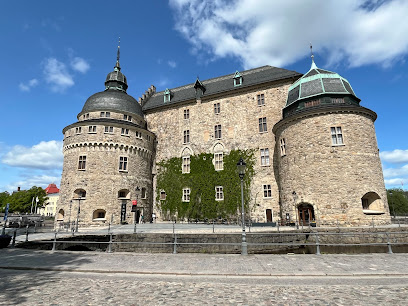
Wadköping
Explore Wadköping, an enchanting open-air museum in Örebro, showcasing Sweden's rich cultural heritage through beautifully preserved historical architecture and vibrant local crafts.
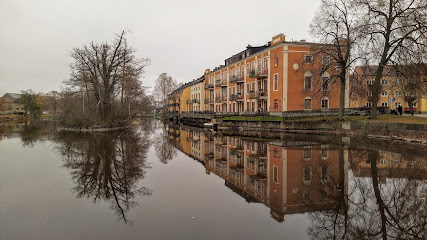
Gustavsvik Resorts AB
Discover adventure and relaxation at Gustavsvik Resort, Örebro's premier water park with thrilling slides, serene swimming areas, and family-friendly fun.
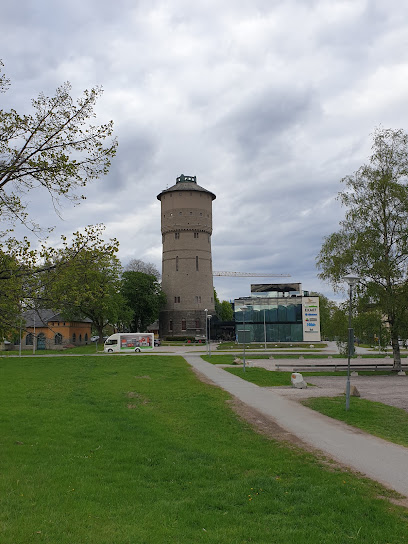
Svampen Skybar
Experience panoramic views and exquisite dining at Svampen Skybar, Örebro's premier observation deck and restaurant, perfect for an unforgettable culinary adventure.
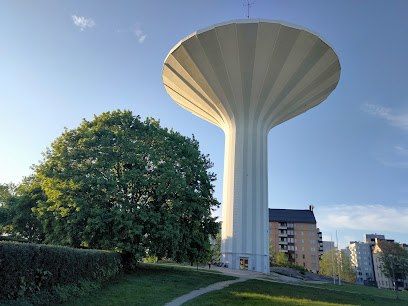
Stadsparken
Explore Örebro's Stadsparken, a vibrant urban park filled with lush gardens, cultural art, and serene walking paths perfect for relaxation and enjoyment.
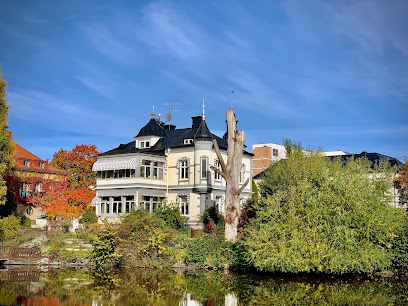
Stora Örebro
Discover Stora Örebro, a culinary haven in Örebro offering a diverse menu and inviting atmosphere for an unforgettable dining experience.
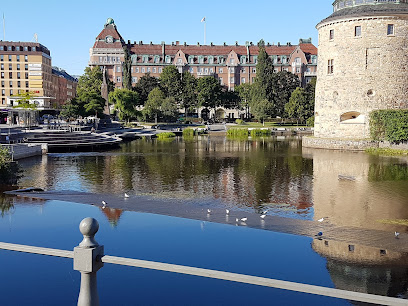
Karlslund Manor & Garden
Explore the serene beauty and rich history of Karlslund Manor & Garden in Örebro, Sweden, a perfect retreat for nature lovers and culture enthusiasts.
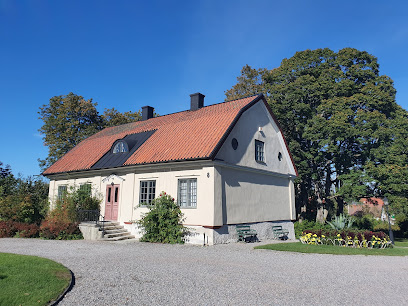
Rusakulan
Experience breathtaking views and serene nature at Rusakulan, a must-visit vista point in Örebro, Sweden, perfect for outdoor enthusiasts and photographers.
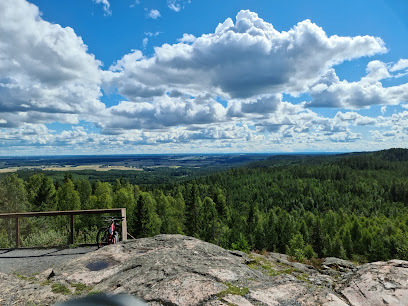
Slottsparken Örebro
Explore the lush landscapes and historical charm of Slottsparken Örebro, a serene escape in the heart of Sweden's vibrant city.
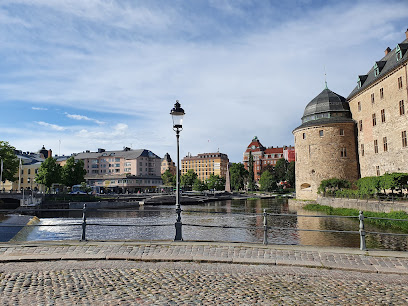
Örebro C
Discover Örebro C: Your gateway to the enchanting city of Örebro and the rest of Sweden with seamless bus and train connections.
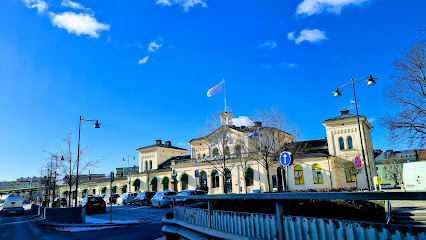
Örebro County Museum
Explore Örebro County Museum, where history comes alive through engaging exhibits and local artifacts that tell the story of Örebro's vibrant past.
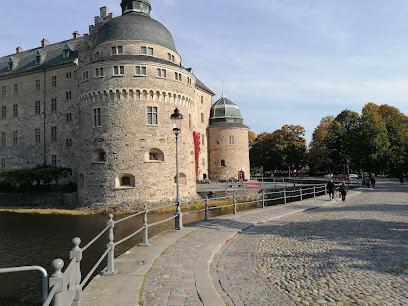
Sommarro cultural reserve
Discover the natural beauty and cultural heritage of Sommarro Cultural Reserve, a serene escape in Örebro, Sweden, perfect for nature lovers.
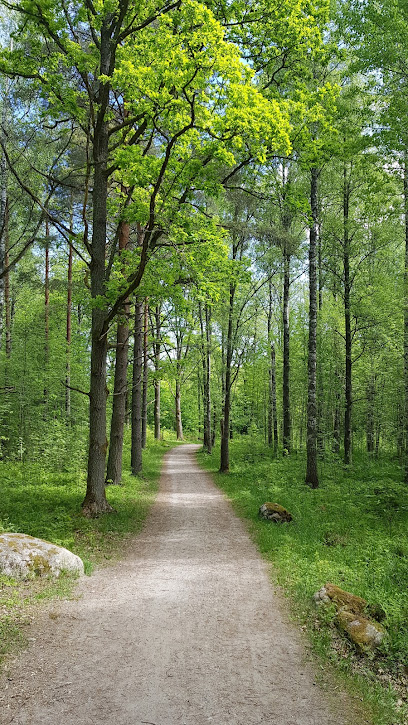
Gustavsvik Utebad
Discover the refreshing allure of Gustavsvik Utebad, Örebro's premier outdoor swimming pool, perfect for family fun and relaxation during the Swedish summer.
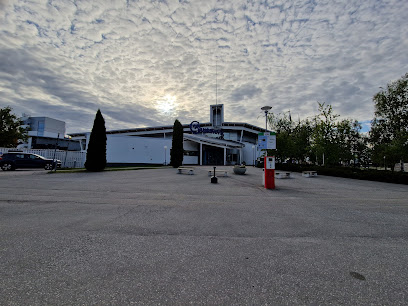
Stortorget
Discover the vibrant heart of Örebro at Stortorget, where history, culture, and community come together in a charming town square.

Järntorget
Discover the vibrant Järntorget in Örebro, Sweden, a historic town square filled with culture, charm, and local experiences.

Unmissable attractions to see
Örebro Castle
Discover the rich history and stunning architecture of Örebro Castle, a majestic fortress surrounded by scenic waters in Sweden.
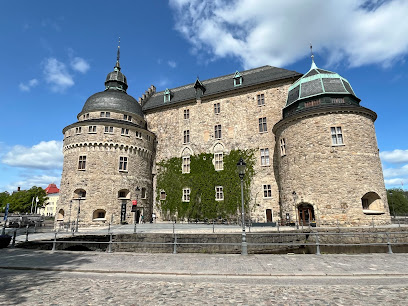
Wadköping
Explore Wadköping, Örebro's historical open-air museum showcasing Sweden's rich cultural heritage through beautifully preserved buildings and vibrant events.
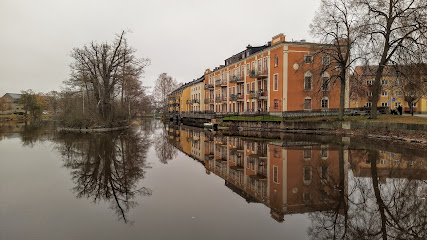
Gustavsvik Resorts AB
Discover the ultimate water adventure at Gustavsvik, Örebro's premier water park featuring thrilling slides, relaxing pools, and family-friendly fun.
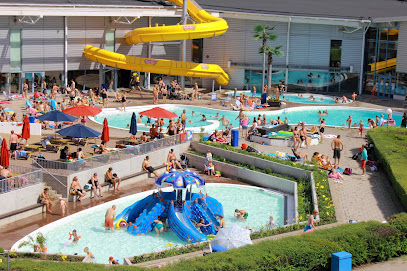
Stadsparken
Explore the beauty of Stadsparken in Örebro, a serene park perfect for relaxation, picnics, and family outings amidst stunning natural landscapes.
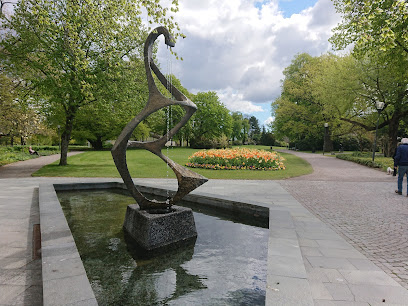
Kvarntorpshögen
Explore Kvarntorpshögen: A Stunning Tourist Attraction Blending Nature, Art, and History in Kumla, Sweden.
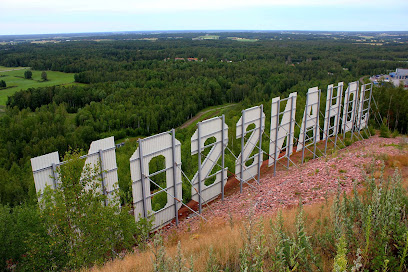
Stadsträdgården
Discover the serene beauty of Stadsträdgården in Örebro, a lush park perfect for relaxation and exploration amid vibrant gardens and scenic landscapes.
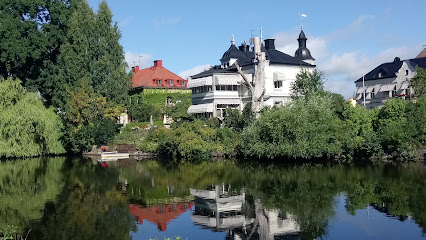
Stora Holmen
Discover the magic of Stora Holmen, a family-friendly playground in Örebro, Sweden, where adventure and laughter await at every turn.
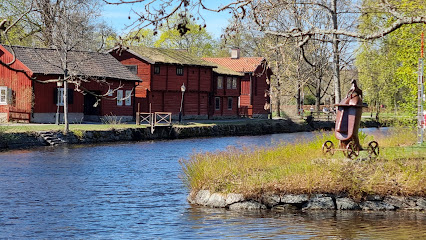
Oset and Rynningeviken
Experience the natural beauty of Oset and Rynningeviken, a serene nature preserve in Örebro, perfect for outdoor adventures and wildlife encounters.
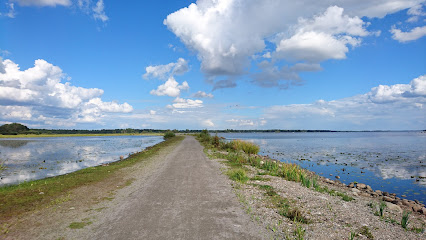
technical mill
Explore the fascinating world of technology and innovation at the Technical Mill in Örebro, a must-visit museum for tech enthusiasts and families alike.
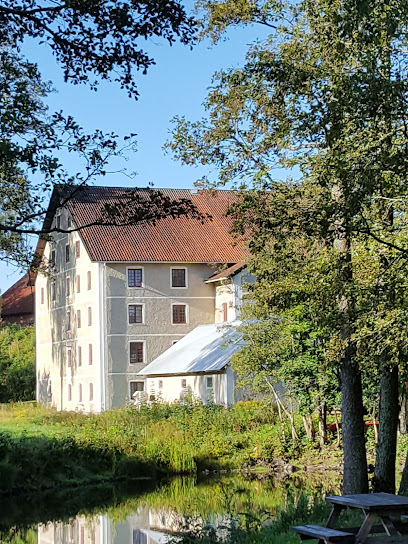
Varbergaparken
Explore the natural beauty of Varbergaparken in Örebro, Sweden, a serene urban park perfect for relaxation and recreation.
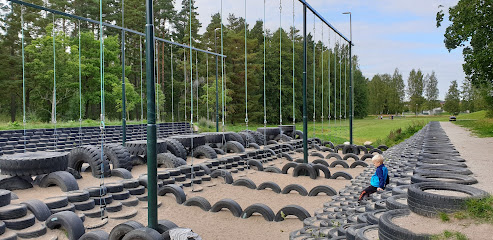
Karlslund Manor & Garden
Explore the enchanting Karlslund Manor & Garden, a serene haven of history and nature in Örebro, Sweden, perfect for relaxation and exploration.
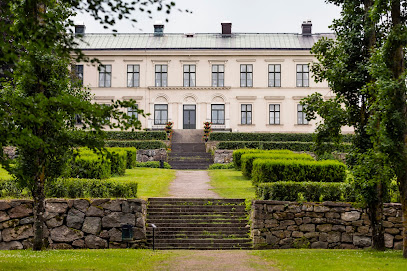
Rusakulan
Experience the serene beauty of Rusakulan, a scenic vista point in Örebro, perfect for nature lovers and photography enthusiasts.
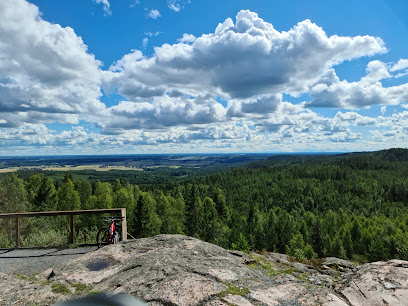
Glass House Orebro
Experience the tranquil beauty of Glass House Örebro, where nature flourishes and serenity reigns in the heart of Sweden.
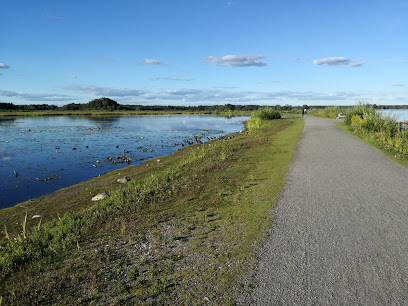
Vivalla Hill
Experience the natural beauty and tranquil atmosphere of Vivalla Hill, a serene park in Örebro perfect for relaxation and outdoor adventures.
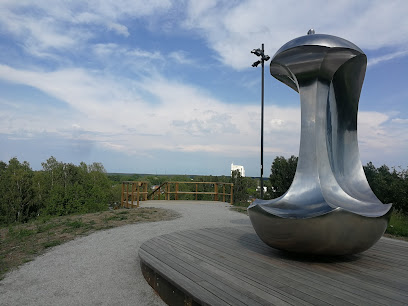
Rynningeviken
Explore the serene landscapes of Rynningeviken Nature Reserve in Örebro, Sweden, a paradise for nature lovers, birdwatchers, and outdoor enthusiasts.
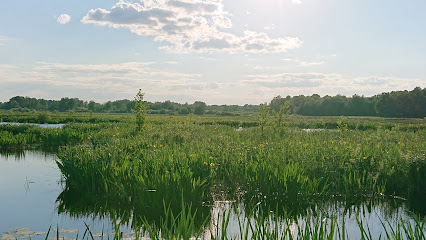
Essential places to dine
Fratelli Örebro
Experience authentic Italian flavors at Fratelli Örebro, where every meal is a journey through Italy's rich culinary heritage.
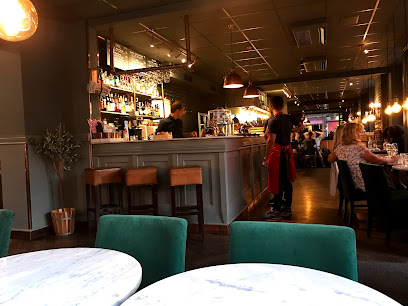
Örebro Saluhall
Experience diverse global cuisines at Örebro Saluhall – a vibrant food hall offering everything from Italian delights to Vietnamese specialties.
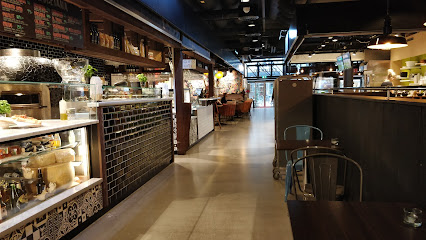
Sobi
Experience the vibrant flavors of Asia at Sobi in Örebro – where culinary tradition meets modern dining.
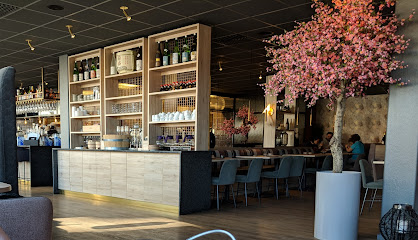
Mocca Deli Örebro
Discover the flavors of Sweden at Mocca Deli Örebro - where every meal is crafted with passion and creativity.
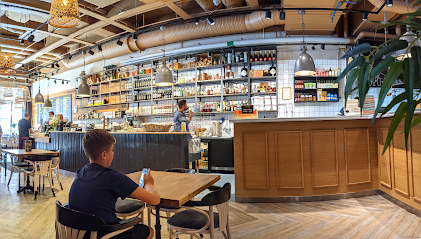
Kinamuren
Experience the essence of China at Kinamuren in Örebro—where authentic flavors meet warm hospitality.
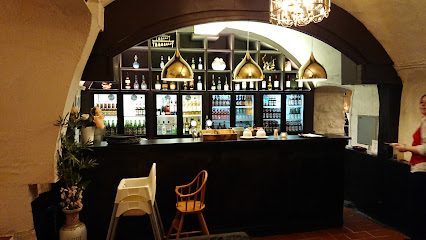
Örebro Ölhall
Experience the best of Swedish hospitality at Örebro Ölhall with craft beers, delicious food, and a lively atmosphere perfect for any occasion.
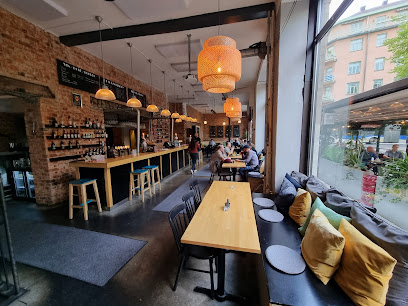
Makeriet
Savor exceptional barbecue and exquisite wines at Makeriet – Örebro's premier destination for dining and nightlife.
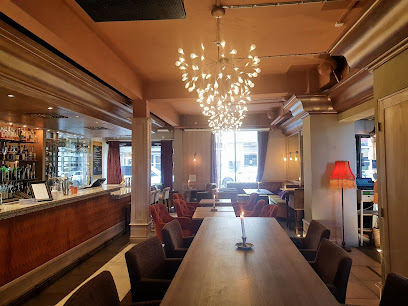
GREKISKA grill & bar
Discover the flavors of Greece at GREKISKA Grill & Bar in Örebro – where every meal is a celebration of Mediterranean cuisine.
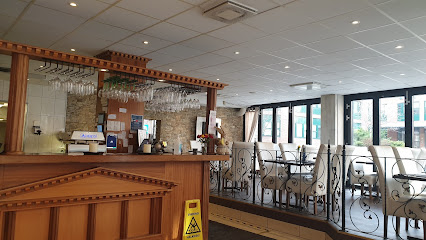
Stora Örebro
Experience the best of Swedish cuisine with an international flair at Stora Örebro – where every meal is a celebration!
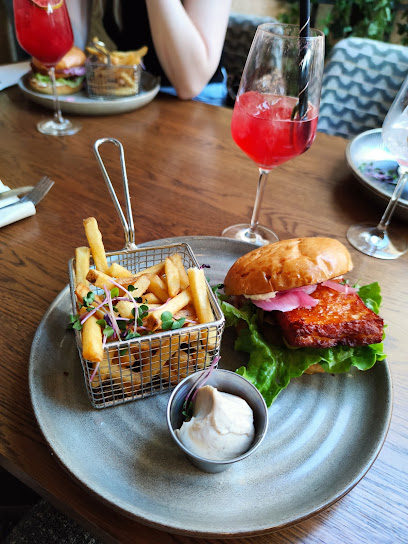
Yerevan Mangal
Discover the rich flavors of Armenia at Yerevan Mangal in Örebro – where every dish tells a story.
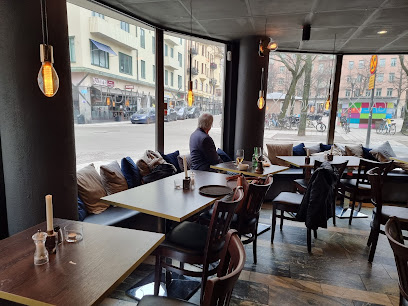
SORELLA ÖREBRO
Experience authentic Italian cuisine at Sorella Örebro - where every dish tells a story of flavor and tradition.
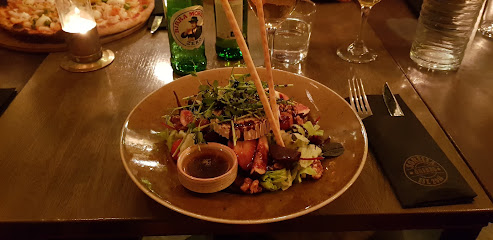
Restaurang Hellas
Experience the vibrant flavors of Greece at Restaurang Hellas in Örebro—where every meal tells a story.
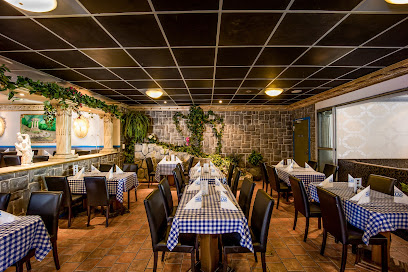
Paolo's
Savor authentic Italian flavors at Paolo's in Örebro—where every meal feels like a celebration of Italy.
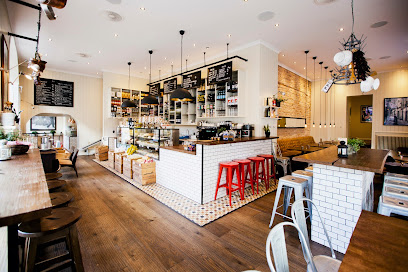
Dannes
Discover the rich flavors of Sweden at Dannes in Örebro – where tradition meets modern culinary artistry.
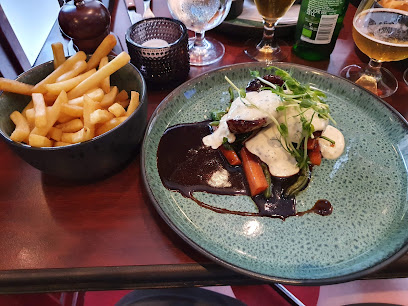
Burger Love
Discover gourmet hamburgers crafted with local ingredients at Burger Love in Örebro—where flavor meets passion.
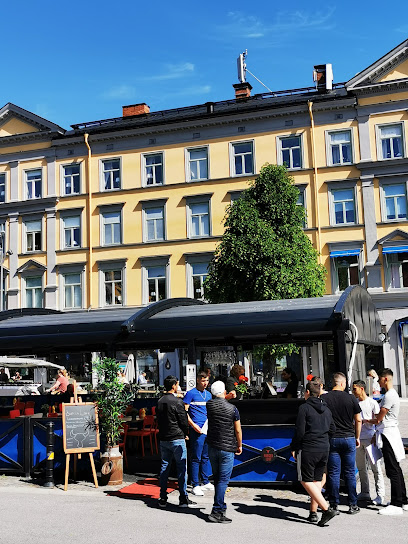
Markets, malls and hidden boutiques
Marieberg Galleria
Experience the ultimate shopping adventure at Marieberg Galleria, Örebro's leading shopping mall with diverse stores and delightful dining options.
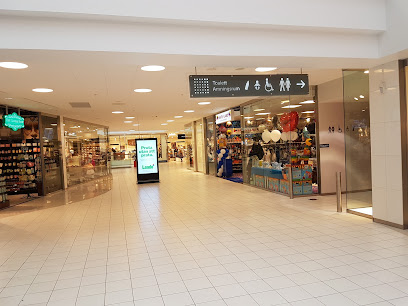
Krämaren
Explore Krämaren, Örebro's vibrant shopping mall, featuring diverse shops, cozy cafes, and a lively atmosphere for all your retail needs.
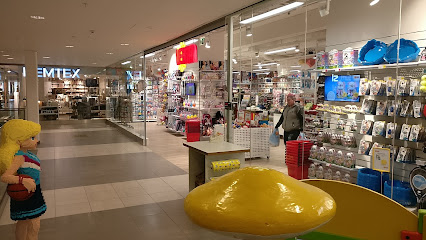
Vågen gallerian
Discover the essence of Örebro at Vågen Gallerian, where shopping meets local culture in a vibrant atmosphere.
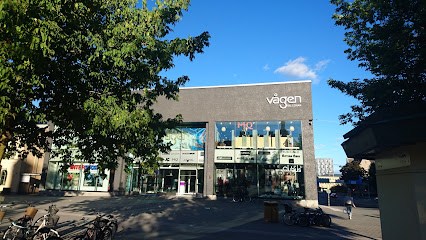
Ali Baba
Discover diverse culinary delights at Ali Baba, Örebro's grocery store offering a taste of Middle Eastern and Afro-Caribbean cultures.
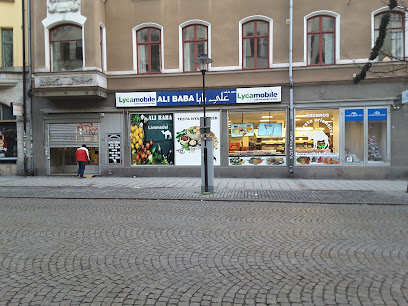
Lindhska Bokhandeln
Discover literature's treasures at Lindhska Bokhandeln, Örebro’s beloved bookstore, featuring a rich selection for every book lover.
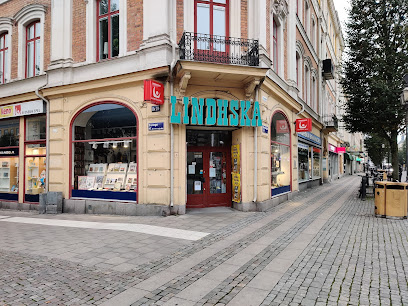
New China Trading Orebro
Explore authentic Asian ingredients and flavors at New China Trading in Örebro's Oscar C Galleria, a must-visit for culinary enthusiasts.
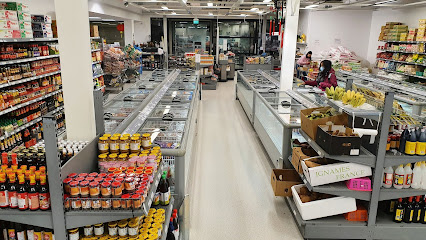
Galleria Oscar C
Shop, dine, and explore at Galleria Oscar C, Örebro's premier shopping mall with a vibrant atmosphere and diverse offerings for every visitor.
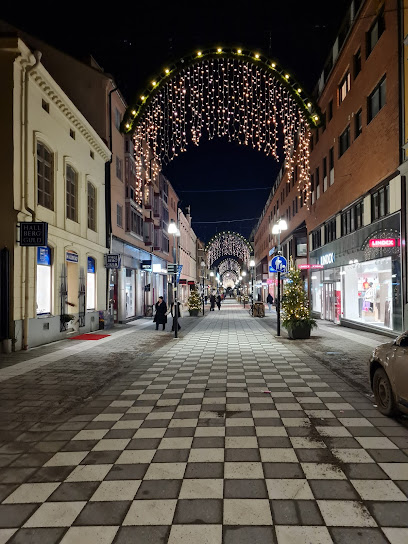
Bananamoon
Explore Bananamoon in Örebro: a unique used CD and thrift store offering music treasures and vintage finds for every traveler.
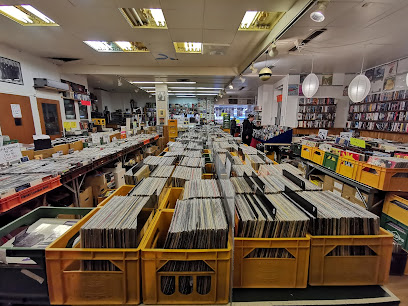
Videobiljarden i Örebro AB
Discover the vibrant entertainment scene at Videobiljarden i Örebro, a unique fairground with arcade games, pool, and a lively bar atmosphere.
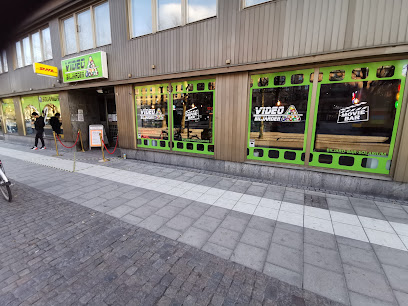
JOHNELLS ÖREBRO
Explore Johnells Örebro for a unique shopping experience featuring stylish clothing and exceptional service in the heart of Sweden.
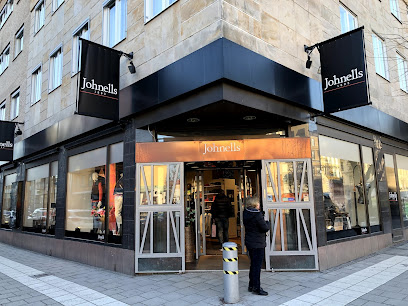
Outdoor Xtrem Örebro AB
Discover the ultimate destination for outdoor sports gear, fishing tackle, and adventure essentials at Outdoor Xtrem Örebro AB in Sweden.
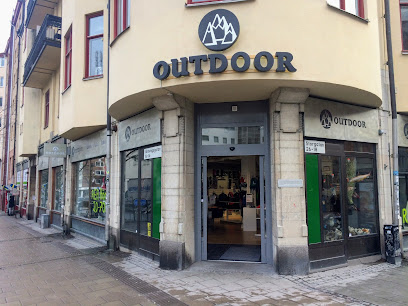
Naturkompaniet
Discover the ultimate outdoor sports gear at Naturkompaniet in Örebro, Sweden - your one-stop shop for skiing, hiking, and more.
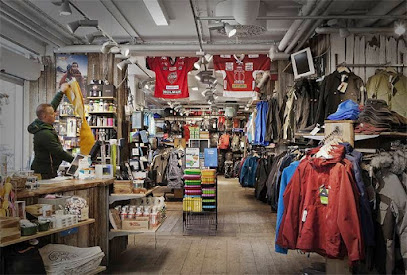
Matkungen
Discover the flavors of Sweden at Matkungen, Örebro's vibrant grocery store offering local produce and artisanal delights.
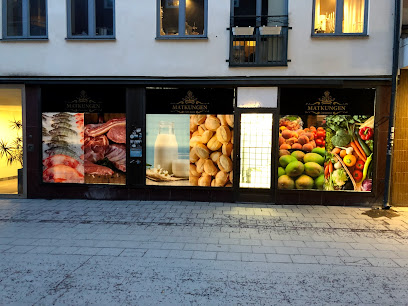
Dressmann Dressmann Örebro City
Discover stylish men's clothing at Dressmann Örebro City, where quality meets modern fashion in the heart of Sweden.
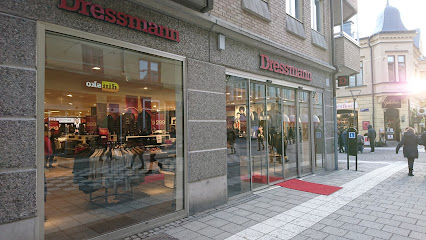
Varsam AB
Experience the heart of Örebro shopping at Varsam AB, where quality meets local charm in a delightful store.
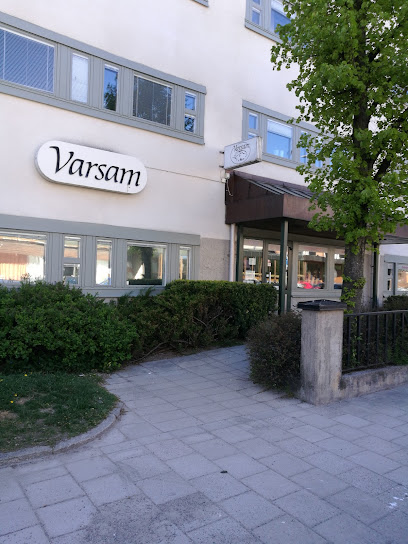
Essential bars & hidden hideouts
Pitcher's
Experience the thrill of live sports and delicious dining at Pitcher's, Örebro's favorite sports bar offering a vibrant atmosphere and diverse menu.
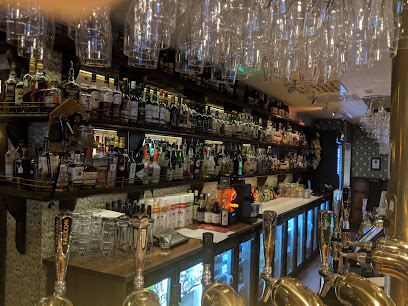
Mocca Deli Örebro
Discover the vibrant culinary scene at Mocca Deli Örebro, where delicious food and refreshing cocktails await in a cozy atmosphere.
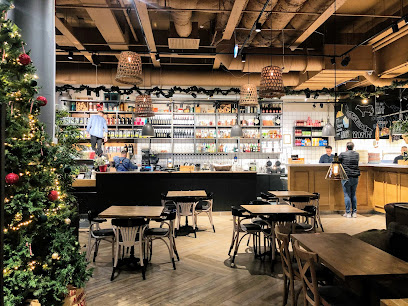
The Bishops Arms - Örebro
Discover The Bishops Arms in Örebro, a cozy bar and restaurant offering a delightful mix of Swedish cuisine and a vibrant drink selection.
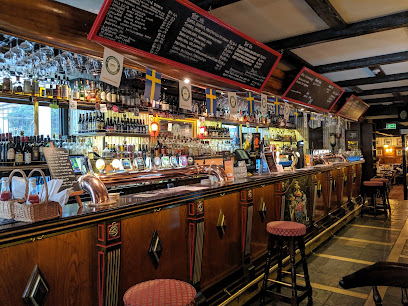
Örebro Ölhall
Discover Örebro Ölhall, a cozy bar and restaurant in Örebro, Sweden, offering a vast selection of craft beers and delicious cuisine in a warm atmosphere.
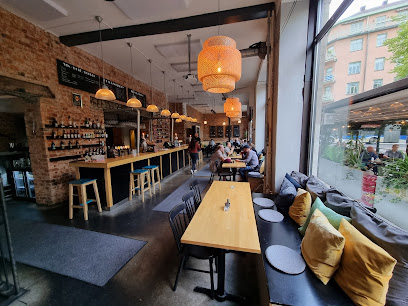
Makeriet
Experience the best of Örebro’s dining and nightlife at Makeriet, where exceptional barbecue meets vibrant entertainment.
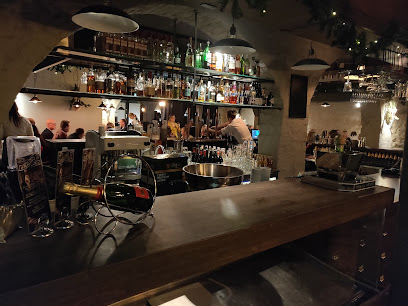
Dannes
Experience the vibrant flavors of Swedish cuisine at Dannes, a cozy bar and restaurant in the heart of Örebro.
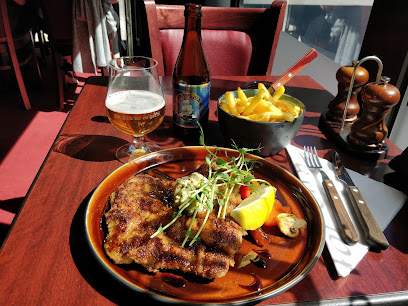
Pub Stallyktan
Discover the inviting atmosphere and delicious offerings at Pub Stallyktan, a top gastropub in Örebro, perfect for tourists and locals alike.
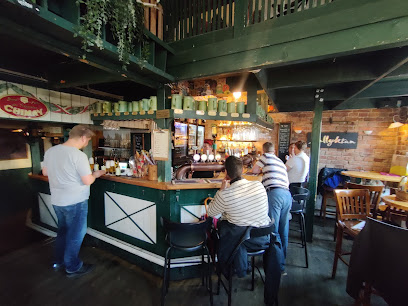
Boulebar Slottsgatan
Experience a unique blend of French cuisine and entertainment at Boulebar Slottsgatan in Örebro – a must-visit for food lovers.
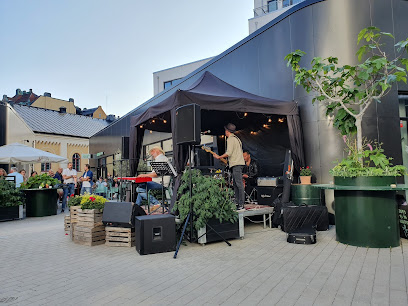
Ingeborgs i Örebro
Experience the best of Swedish cuisine at Ingeborgs i Örebro, where delicious dishes meet warm hospitality in a cozy setting.
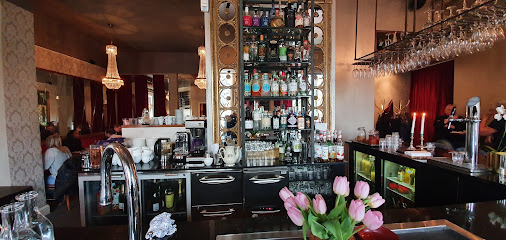
Mojo Örebro
Discover the culinary artistry of Mojo Örebro, where local flavors meet modern dining in a vibrant atmosphere.
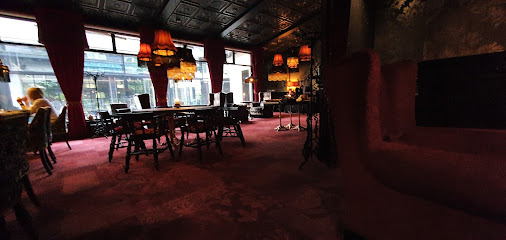
Lilla Örebro
Experience culinary excellence at Lilla Örebro, a premier cocktail bar and restaurant offering a unique blend of flavorful dishes and innovative cocktails.
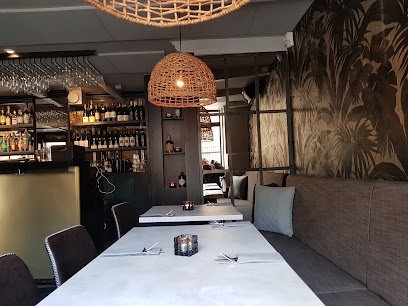
Gyllene Hörnan Pub och Restaurang
Experience the taste of Sweden at Gyllene Hörnan Pub och Restaurang, where cozy vibes meet delicious food and drinks in Örebro.
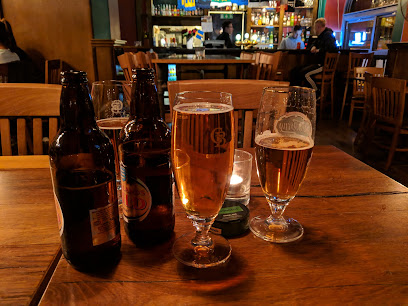
1 Rum & Kök
Experience the best of Swedish cuisine at 1 Rum & Kök, a charming bistro in Örebro with a modern twist.
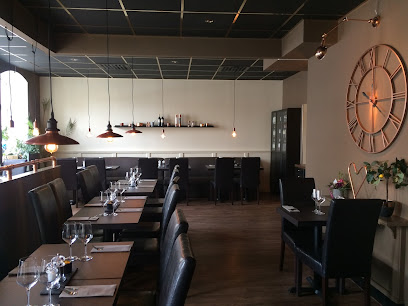
West Pub
Discover the vibrant atmosphere of West Pub in Örebro, where sports meet delicious dining in a lively setting perfect for locals and tourists alike.
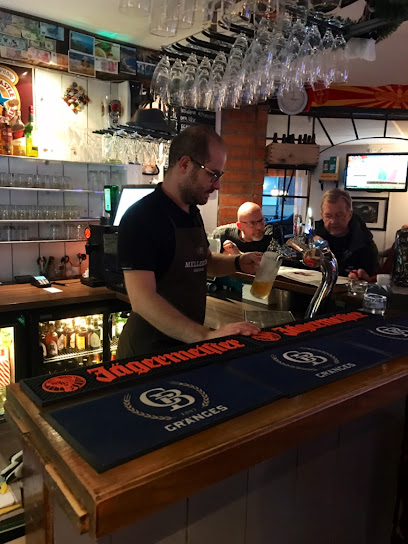
Kappa Bar Örebro
Experience the vibrant atmosphere and delicious cuisine at Kappa Bar Örebro, a top dining destination in the heart of Örebro, Sweden.
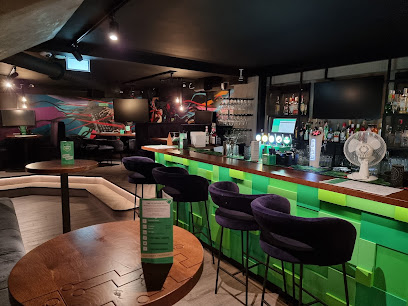
Local Phrases
-
- HelloHej
[hey] - GoodbyeAdjö
[ad-yu] - YesJa
[ya] - NoNej
[nay] - Please/You're welcomeSnälla/Tack
[snell-a/tack] - Thank youTack
[tack] - Excuse me/SorryUrsäkta
[ur-sekta] - How are you?Hur mår du?
[hur mor doo] - Fine. And you?Bra. Och du?
[bra. och doo] - Do you speak English?Talar du engelska?
[talar doo engelska] - I don't understandJag förstår inte
[yag for-stor in-te]
- HelloHej
-
- I'd like to see the menu, pleaseJag skulle vilja se menyn, tack
[yag skul-le vil-ya se me-nyn, tack] - I don't eat meatJag äter inte kött
[yag e-ter in-te shøt] - Cheers!Skål!
[skol] - I would like to pay, pleaseJag skulle vilja betala, tack
[yag skul-le vil-ya be-ta-la, tack]
- I'd like to see the menu, pleaseJag skulle vilja se menyn, tack
-
- Help!Hjälp!
[yelp] - Go away!Gå bort!
[go bor-t] - Call the Police!Ring polisen!
[ring poli-sen] - Call a doctor!Ring en läkare!
[ring en le-ka-re] - I'm lostJag är vilse
[yag ar vil-se] - I'm illJag är sjuk
[yag ar shuuk]
- Help!Hjälp!
-
- I'd like to buy...Jag skulle vilja köpa...
[yag skul-le vil-ya shø-pa] - I'm just lookingJag tittar bara
[yag tit-tar ba-ra] - How much is it?Vad kostar det?
[vad kost-ar det] - That's too expensiveDet är för dyrt
[det ar for dyrt] - Can you lower the price?Kan du sänka priset?
[kan doo sen-ka pris-et]
- I'd like to buy...Jag skulle vilja köpa...
-
- What time is it?Vad är klockan?
[vad ar klåk-kan] - It's one o'clockKlockan är ett
[klåk-kan ar ett] - Half past (10)Halv (tio)
[halv (tee-oo)] - MorningMorgon
[mor-gon] - AfternoonEftermiddag
[ef-ter-mid-dag] - EveningKväll
[kvell] - YesterdayIgår
[ee-gor] - TodayIdag
[ee-dag] - TomorrowImorgon
[ee-mor-gon] - 1Ett
[et] - 2Två
[två] - 3Tre
[tre] - 4Fyra
[fyra] - 5Fem
[fem] - 6Sex
[sex] - 7Sju
[shoo] - 8Åtta
[ot-ta] - 9Nio
[nee-o] - 10Tio
[tee-o]
- What time is it?Vad är klockan?
-
- Where's a/the...?Var finns en/ett...?
[var fins en/et] - What's the address?Vad är adressen?
[vad ar ad-resen] - Can you show me (on the map)?Kan du visa mig (på kartan)?
[kan doo vee-sa may (på kar-tan)] - When's the next (bus)?När går nästa (buss)?
[nar gor nes-ta (boos)] - A ticket (to ....)En biljett (till ....)
[en bil-yet (till)]
- Where's a/the...?Var finns en/ett...?
History of Örebro
-
Örebro’s history dates back to the medieval period with its first known mention in historical records from the 13th century. The city was strategically located by the banks of the Svartån River, which made it an important hub for trade and commerce. The name 'Örebro' is derived from the words 'öre' meaning gravel, and 'bro' meaning bridge, signifying its role as a crossing point over the river.
-
One of the most iconic landmarks in Örebro is the Örebro Castle. Originally constructed as a fortress in the late 13th century, it played a crucial role in the defense of the region. The castle has witnessed numerous historical events, including the reigns of various Swedish monarchs. It was extensively renovated in the 16th century under King Gustav Vasa, transforming it into a Renaissance-style palace.
-
The Battle of Örebro, which took place in 1521, was a pivotal event during the Swedish War of Liberation. It was part of the wider struggle led by Gustav Vasa against the Danish King Christian II, who had control over Sweden. The successful siege of Örebro Castle marked a turning point in the war and played a significant role in Sweden's path to independence.
-
The 19th century saw Örebro transform into an industrial center. The city's economy thrived on industries such as shoe manufacturing, textiles, and machinery. The arrival of the railroad in the 1860s further accelerated its growth, making Örebro a vital transportation hub. This period marked the city's transition from a small medieval town to a bustling industrial city.
-
Today, Örebro stands as a modern city that harmoniously blends its rich historical heritage with contemporary innovation. The city is home to Örebro University, a leading institution in Sweden, and has become known for its advancements in technology and education. The annual Örebro Music Festival and the Open Art biennial further enrich the city's vibrant cultural scene.
Örebro Essentials
-
Örebro is located in central Sweden and is easily accessible by various modes of transportation. The nearest major airport is Stockholm Arlanda Airport (ARN), which is about 200 kilometers away. From the airport, you can take a direct train to Örebro Central Station, which takes roughly 2-3 hours. Additionally, Örebro Airport (ORB) also offers domestic flights and some international connections. For those traveling by train, Örebro is well-connected by the Swedish rail network, and trains from Stockholm, Gothenburg, and Malmö run frequently. Buses and cars are also convenient options, with well-maintained highways connecting Örebro to other major cities.
-
Örebro boasts an efficient public transportation system, including buses and taxis. Local buses are operated by Länstrafiken Örebro and cover most parts of the city and its suburbs. Tickets can be purchased at kiosks, online, or directly from bus drivers. For a more flexible option, taxis are widely available and can be hailed from the street or booked in advance. Cycling is also a popular means of transportation, with numerous bike lanes and rental options available. For exploring the surrounding areas, renting a car can be a convenient choice.
-
The official currency in Sweden is the Swedish Krona (SEK). Credit and debit cards are widely accepted in Örebro, including in restaurants, shops, and hotels. Mobile payment options like Swish are also commonly used. ATMs are readily available throughout the city, and most offer instructions in multiple languages. It is advisable to carry some cash for small purchases, especially when visiting local markets or smaller establishments.
-
Örebro is generally a safe city for tourists. However, like any other urban area, it is important to take standard precautions. Avoid walking alone at night in poorly lit areas and be mindful of your belongings in crowded places. While there are no specific high-crime areas targeting tourists, it's best to stay vigilant. The city center and areas around the university are typically bustling and safe.
-
In case of an emergency, dial 112 for immediate assistance. This number connects you to emergency services including police, fire department, and medical services. Örebro University Hospital is the main medical facility and offers comprehensive healthcare services. Pharmacies are plentiful and can provide over-the-counter medications for minor health issues. It is recommended to have travel insurance that covers medical emergencies.
-
Fashion: Do dress neatly and comfortably. Swedes appreciate practical yet stylish clothing. Avoid overly flashy attire. Religion: Do respect religious sites and practices. When visiting churches, dress modestly and speak quietly. Public Transport: Do be punctual and respectful. Offer your seat to elderly passengers and don't talk loudly on public transport. Greetings: Do greet people with a firm handshake and maintain eye contact. A simple 'Hej' (Hello) is common. Eating & Drinking: Do try traditional Swedish dishes and fika (coffee break). Don't refuse food or drink offerings, as it may be considered impolite.
-
To experience Örebro like a local, visit Wadköping, an open-air museum that offers a glimpse into the city's history with its well-preserved wooden houses and workshops. Spend time at the beautiful Stadsparken, where locals relax and enjoy outdoor activities. For a unique experience, take a walk around Örebro Castle and its surrounding moat, especially during sunset for stunning views. Don't miss the local markets for fresh produce and handmade crafts. Engaging with locals can offer invaluable insights into the city's culture and history.
Nearby Cities to Örebro
-
Things To Do in Västerås
-
Things To Do in Norrköping
-
Things To Do in Karlstad
-
Things To Do in Linköping
-
Things To Do in Uppsala
-
Things To Do in Stockholm
-
Things To Do in Jönköping
-
Things To Do in Fredrikstad
-
Things To Do in Visby
-
Things To Do in Gothenburg
-
Things To Do in Oslo
-
Things To Do in Kalmar
-
Things To Do in Skagen
-
Things To Do in Frederikshavn
-
Things To Do in Helsingør










